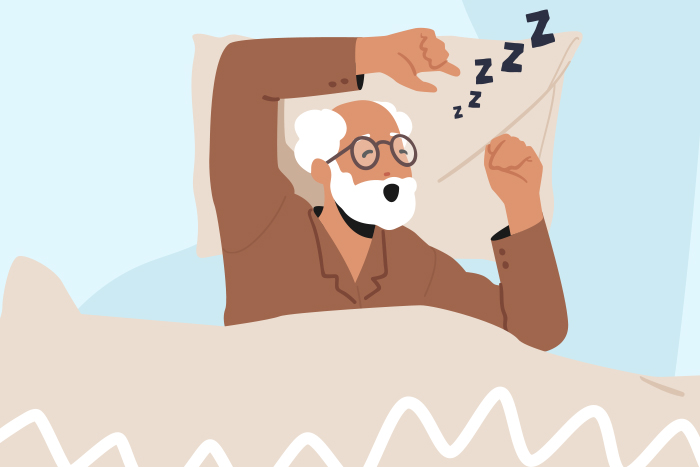Sleep apnea is often brushed off as just loud snoring. But it's much more than that—especially as we age. Sleep apnea is a serious health condition that can affect your heart, brain, and overall well-being. Thankfully, it can be treated. In this article, we’ll walk through what sleep apnea really is, why it matters, and how you can take simple steps to feel better.
What is sleep apnea?
Sleep apnea is a condition that causes you to stop breathing for short periods while you sleep. These pauses can happen many times during the night, often without you knowing it. The result? Poor-quality sleep and low oxygen levels in your blood.
There are two main types of sleep apnea:
Obstructive Sleep Apnea (OSA): This is the most common type. It happens when your throat muscles relax too much and block your airway.
Central Sleep Apnea: This type is less common. It happens when your brain doesn’t send the right signals to the muscles that help you breathe.
Sleep apnea is more common in older adults, especially those who are overweight, have heart conditions, or take certain medications. It can also run in families. You might not realize you have it unless someone else notices your snoring or breathing patterns.
How to Tell If You Might Have Sleep Apnea
Because the symptoms happen while you’re asleep, sleep apnea often goes unnoticed. Here are a few signs to watch for:
Loud snoring that happens most nights
Pauses in breathing or choking during sleep (often noticed by a partner)
Feeling very tired during the day, even after a full night’s sleep
Morning headaches
Waking up with a dry mouth or sore throat
If any of these sound familiar, talk to your doctor. A simple sleep study can confirm whether you have sleep apnea.
The Health Risks of Ignoring Sleep Apnea
When sleep apnea goes untreated, it can lead to bigger health problems over time. Each time your breathing stops, your body briefly wakes up—even if you don’t remember it. This puts a lot of stress on your heart and brain.
Here are some of the health risks linked to untreated sleep apnea:
High Blood Pressure: Low oxygen levels during sleep can cause your blood pressure to rise. This raises your risk for heart disease and stroke.
Heart Disease: Sleep apnea increases your chances of irregular heartbeats, heart failure, and heart attacks.
Stroke: The condition is linked to a higher chance of strokes due to reduced oxygen and increased blood pressure.
Type 2 Diabetes: Sleep apnea can affect how your body uses insulin, which increases your risk for diabetes.
Trouble Staying Alert: You might find it hard to focus and may even fall asleep while watching TV or reading. Some people have a hard time staying awake while driving, which can lead to an increased risk of accidents.
Changes in Mood or Behavior: Sleep apnea can make you feel irritable, sad, or moody.
Importance of Treatment
Treating sleep apnea can significantly improve quality of life and reduce health risks. Common treatments include:
Continuous Positive Airway Pressure (CPAP): This is a type of machine that delivers air pressure through a mask to keep airways open.
Lifestyle Changes: Losing weight, exercising, quitting smoking, and avoiding alcohol can help manage symptoms.
Oral Appliances: These devices are worn during sleep to keep the throat open.
Surgery: In some cases, surgery might be needed to remove tissue or reposition structures in the throat.
Sleeping Better Means Living Better
Sleep apnea is more than just snoring; it's a serious health condition that requires attention. If you suspect you have sleep apnea, consult a healthcare provider. Early diagnosis and treatment can lead to better sleep and a healthier life.
Sources:
Mayo Clinic: Sleep apnea complications
Johns Hopkins Medicine: The Dangers of Uncontrolled Sleep Apnea
National Library of Medicine: Sleep Apnea and Diabetes
National Library of Medicine: Obstructive Sleep Apnea is Linked to Depression and Cognitive Impairment

